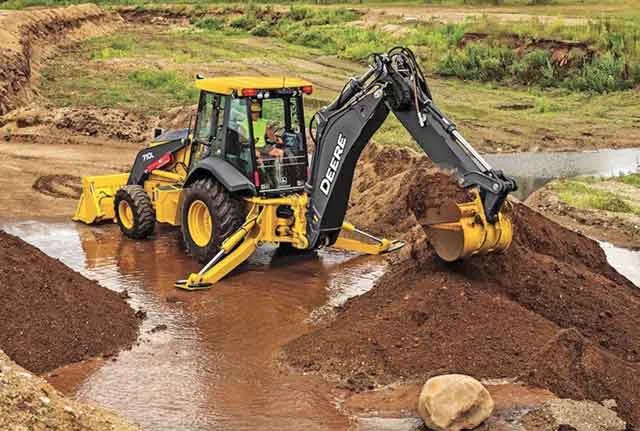Comprehensive Excavation Techniques: Grasping the Fundamentals for Success
The careful preparation, exact execution, and thorough attention to information required in excavation tasks demand a detailed method that encompasses various basic aspects. The real proficiency lies not just in comprehending these principles yet in effortlessly integrating them to navigate the intricacies of excavation tasks with skill.
Recognizing Excavation Project Preparation

Successful excavation jobs are improved the foundation of meticulous and thorough preparation. The preliminary stage of any kind of excavation job is the drawing board, where crucial choices are made that can dramatically impact the result of the project. Throughout this phase, it is crucial to collect all pertinent info about the website, including topographical surveys, soil composition, and any possible dangers that may exist. Recognizing the project budget plan, timeline, and range restraints is crucial for developing a thorough excavation strategy that ensures the project's success.
One key element of excavation project planning is the growth of an in-depth timeline that details the sequence of due dates, activities, and turning points. This timeline works as a roadmap for the job group, permitting them to track progression and make necessary changes to make certain the job stays on schedule. Furthermore, a distinct budget that accounts for all expenditures, including equipment leasing, labor expenses, and materials, is important for staying clear of price overruns and delays. By meticulously thinking about all these elements throughout the drawing board, excavation projects can be implemented successfully and efficiently, leading to successful results.
Dirt Evaluation and Website Analysis
Carrying out complete soil evaluation and website assessment is a crucial action in the prep work stage of any type of excavation task. Dirt analysis includes establishing the make-up, framework, and buildings of the dirt at the excavation website. This information is critical for recognizing the soil's bearing capacity, dampness content, and capacity for disintegration, which are vital aspects in determining the excavation methods and tools required for the job.
Website evaluation exceeds soil analysis and encompasses a more comprehensive assessment of the total website conditions. This evaluation includes determining any type of potential hazards, such as below ground utilities, ecological worries, or unstable surface, that can impact the excavation procedure. By thoroughly examining the website, project managers can create effective excavation techniques that prioritize safety, efficiency, and environmental management.
Making use of advanced modern technologies like ground-penetrating radar, soil sampling, and drone studies can boost the precision and effectiveness of dirt evaluation and site examination. Investing time and resources in these preliminary steps can ultimately conserve time and protect against costly delays or issues during the excavation procedure.
Tools Choice and Application
Effective excavation tasks rely heavily on calculated devices selection and application to make certain optimal performance and performance. Picking the appropriate devices for the job is vital in maximizing effectiveness and decreasing downtime. Elements such as the type of dirt, depth of excavation, and job extent play a significant function in determining the most ideal equipment for the task link available.

Along with selecting the proper equipment, proper use is key to job success. Operators needs to be educated to handle the tools securely and effectively - lancaster trenching. Routine maintenance checks and timely repairs aid stop malfunctions and make certain regular performance throughout the project
Precaution and Laws Conformity
In the world of excavation tasks, prioritizing precaution and compliance with guidelines is critical to making sure a legally audio and secure functional setting. Safety and security measures incorporate a series of practices, including performing complete site analyses, applying correct signage and obstacles, and supplying ample safety and security training for all workers entailed in the excavation process. Adherence to guidelines, such as OSHA needs in the USA, guarantees that the excavation job meets the essential requirements to safeguard workers, onlookers, and the surrounding setting.

Surveillance Development and Adjusting Methods
Just how can project managers successfully track the improvement of excavation jobs and adapt their techniques as necessary to enhance results? Monitoring progression is important for guaranteeing that excavation tasks stay on track and meet deadlines.

Verdict
In conclusion, grasping the basics of detailed excavation methods is essential for the success of any type of task. By recognizing project planning, examining soil and website problems, selecting appropriate equipment, abiding with safety and security guidelines, and keeping an eye on progress, task managers can guarantee a effective and smooth excavation procedure. Applying these approaches will result in effective end results and reduce possible risks or problems throughout the excavation task.
The first stage of any excavation project is the planning phase, where important choices are made that can substantially influence the result of the project. Understanding the job budget plan, timeline, and range restrictions is crucial for creating a thorough excavation plan that makes sure the task's success.
Just how can predict managers efficiently track the improvement of excavation jobs and adjust their methods as necessary to maximize end results? By closely monitoring development and being ready to adjust techniques, task managers can improve the overall success of excavation projects.
By recognizing task preparation, analyzing dirt and website problems, choosing proper tools, complying with safety regulations, and monitoring progression, task supervisors can make certain a effective and smooth excavation process.